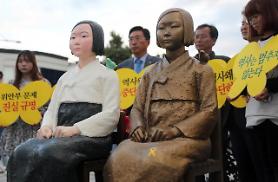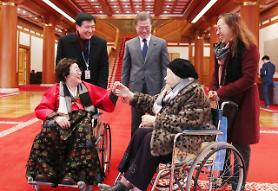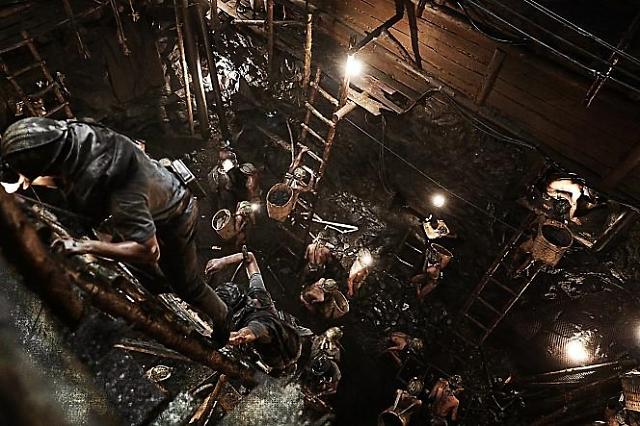
[Screenshot from a film Battleship Island]
On top of a thorny historical dispute over wartime sexual slavery, Japan faces a new concerted campaign by South Korean groups through social media and movie screens to advertise forced labor on an island selected as a UNESCO World Heritage site
A film depicting Koreans forced to work at coal mines on Japan's Hashima Island, also known as Battleship Island, during World War II will be screened in South Korea on July 26 as a reminder of Japan's dark history.
"The Battleship Island" starring Hwang Jung-min, So Ji-sub and Song Joong-ki is a film about an attempted prison break from a labor camp on the island, about 15 kilometers (9 miles) from the Japanese city of Nagasaki, which now features abandoned concrete buildings and the surrounding sea wall.
The 6.3-hectare (16-acre) island, known for its undersea coal mines, was formally approved as a UNESCO World Heritage site in July 2015. Japan regards it as a symbol of rapid industrialization while South Korea describes it as a site of forced labor.
UNESCO recommended that Japan present a complete history of the island, including forced labor, but Tokyo has yet to take action despite pressure from the Seoul government and civic groups. During Japan's colonial rule from 1910-45, tens of thousands of Koreans were forced to work in mines, shipyards and other industrial sites. Government data here showed 122 Koreans died just on the island.
The film directed by Ryoo Seung-wan depicts the story of about 400 Korean workers who risk their lives to attempt an escape, and portrays Hashima as a "hell island". The movie has been sold in advance to more than 100 countries.
Japan's right-wing newspaper Sankei Shimbun accused the film of distorting the truth, but Ryoo insisted it should be considered "historical fiction" saying it was not meant to fuel anti-Japanese sentiment. "I think the history of forced labor is true, but characters in the film and the escape of Korean people were made up," he told reporters on Wednesday.
However, the film is certain to have an unintended consequence as it will be screened at theaters in more than 110 countries.
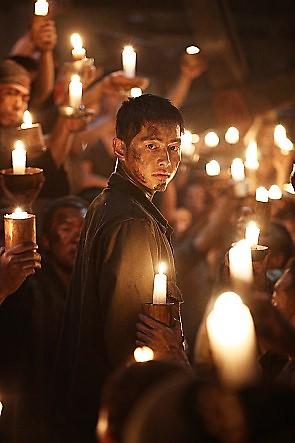
Song Joong-ki starrs as an OSS agent in a film Battleship Island. [Screenshot from a film Battleship Island]
Actor Song Joong-ki, who starred in "Descendants of the Sun" with actress Song Hye-kyo, was more straightforward, praising his fiance for rejecting a modeling offer from Japan's leading automaker Mitsubishi Motors. Mitsubishi was involved in a lawsuit over the wartime use of forced labor. The Song-Song couple would get married in October.
In time for the film's release, Seo Kyoung-duk, a Sungshin Women's University professor, launched a strenuous campaign on social media with a video showing inhumane treatment on the island. In early July, he had put up a 15-second ad about "Truth of Hashima Island" on a billboard in New York City's Time Square.
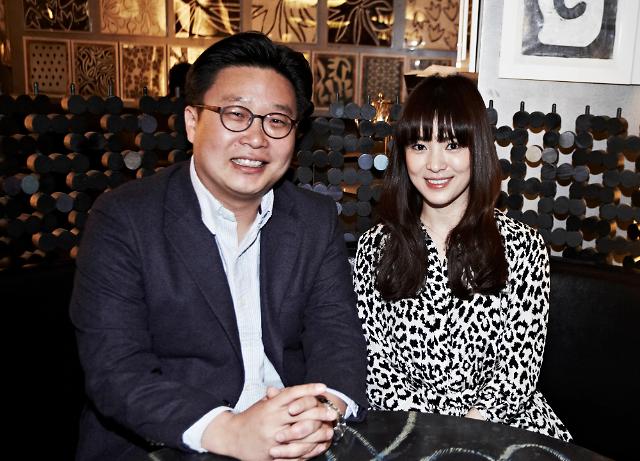
Professor Seo Kyung-duk (left) and actress Song Hye-kyo (right). [Courtesy of Seo Kyung-duk]
The professor accused Japan of "distorting historical fact". "Now I would like to tell the truth to the world through SNS. We hope that Japanese government will genuinely apologize to the victims of forced labor."
The film comes on the heels of a prolonged diplomatic row over "comfort women" sexually enslaved by Japan's imperial army. Under a 2015 deal, Japan agreed to donate one billion yen ($9 million) to a foundation dedicated to supporting comfort women. In return, Tokyo urged Seoul to tear down the "comfort woman" statues erected by civic groups outside Japanese legations.
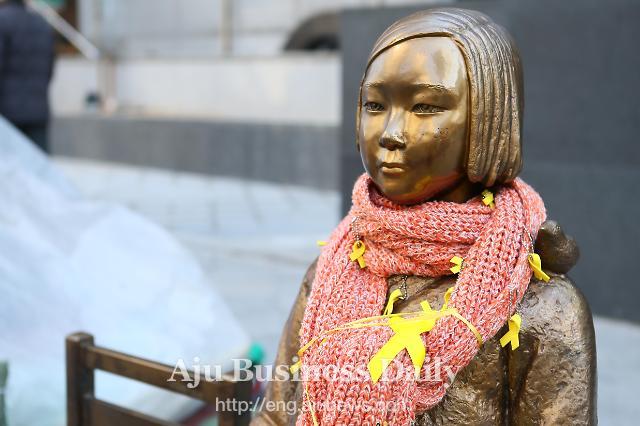
[Photo by Yoo Dae-gil = dbeorlf123@ajunews.com]
President Moon Jae-in has hinted at a possible renegotiation of the deal, saying many Koreans do not endorse it. Historians estimate that up to 200,000 women mostly from Korea were forced to work in front-line brothels for Japanese troops. Many South Koreans still harbor deep resentment against Japan over its colonial rule, and they want Tokyo's sincere apology.
South Korea plans to designate August 14 as a national memorial day for "comfort women", and build a museum by 2020 near the center of Seoul so that it could become a "mecca" for future generations to remember and recall Japan's past wrongdoing.
Copyright ⓒ Aju Press All rights reserved.

![[COLUMN] How long will the Comfort Woman statue last?](https://image.ajunews.com/content/image/2023/04/14/20230414135841628377_278_163.jpg)
